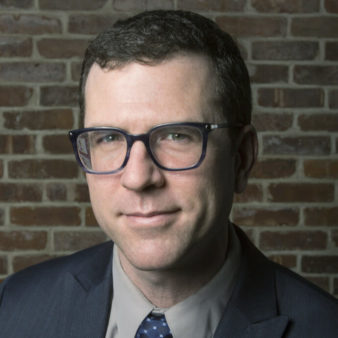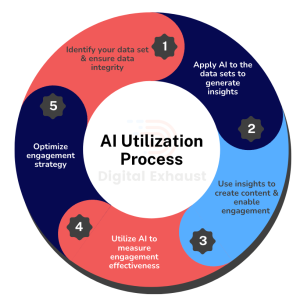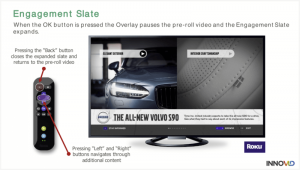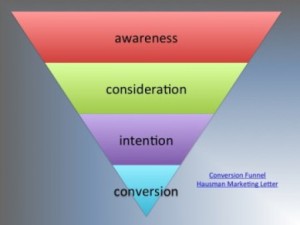Consultant and marketing coach Tim Parkin tells us about being a magician, a game developer and what problems marketers are looking to solve.
In this new series, we dig deeper into the stories of our expert contributors. This interview has been edited for clarity and length.
Tim Parkin is a marketing consultant and advisor. He brings a fresh perspective to marketing from his days in technology and game development. Drawing on this experience, he has coached marketing executives at global organizations and contributed a wide range of pieces for MarTech touching on video, in-game advertising, customer journeys, attribution and many other topics.
We spoke to him about his journey.
Q: How did you get into marketing? Was that an early interest for you?
A: It’s so funny because I have no experience traditionally in marketing. I didn’t intend to end up here. As a kid, I thought I’d be a professional magician. My dad got me into magic, and so I pursued that. Then I realized, you end up working nights and weekends. That’s when people have parties and dinners. So I said, “That’s not for me.” So I ended up in technology — software development and programming. And from that I helped out a lot of companies. But then I realized, we’d build all these really cool things and no one would use it or see it. And that’s when it hit me, they didn’t have a product problem, they had a marketing problem. And so that got me interested in marketing. And I found in that journey that magic and marketing are almost identical. Magic is about telling a story, getting people’s attention, controlling that attention — having them not look at the things you don’t want them to look at, and focus on the things you want them to look at.
Q: What kind of magic did you do? Cards? Levitation? Cutting your assistant in two with a saw?
A: Cards! I always carry a deck of cards with me. In high school and college, I found it hard to meet people and put myself out there. But with magic, you enter this new persona or character, this alter-ego. And I can have a crowd of people around me, all watching me, and amaze and entertain them for a brief time. It helped me survive college, as an introvert, and now it’s a great networking tool at conferences or in client meetings.
Q: Do you have a favorite trick?
A: I do! It’s funny, I’ve been married for 13 years and dated my wife four years before that, so she’s seen this trick, called “twisting the aces.” She’s seen it so many times that as soon as I start to say the words, she walks away because she knows what’s coming.
Q: What kind of technology and software did you work on?
A: I have an education in game design and development. So I was building video games and was in the video game industry for a brief time. From there, I moved into government work, building military simulation — which is basically video games that are 20 years in the past. It was interesting but kind of boring. Then, web 2.0 kind of took off and web apps became a big deal, so I built a lot of web apps and mobile apps.
Q: Without disclosing any classified information, why were the military projects you worked on so behind the times?
A: When I worked on military simulation, they were doing things like exercise planning for different branches of the military. And that stuff was just so rudimentary. You’d be surprised. I hope it’s improved in the 15 years since I worked on it. You’d have a simulation of walking through a ship in the Navy and it looked like “Doom” from years and years ago. A lot of it was built on legacy systems, so they’d have to redo everything in order to update it. Obviously, it was all very precise, but I don’t think that’s an excuse for not being modern and pushing the limits visually.
Q: What was it like to go into consulting without any formal marketing experience?
A: I’ve learned it all on the job with my clients. But that’s a good thing because I’ve often said, “I’m hired for my ignorance, not for my experience.” And I think it’s true that clients really need a fresh perspective. They really need somebody to ask the questions no one else is asking and someone who can see things from the consumer side and from the team side. It hasn’t been a detriment to not have a formal marketing background. And frankly, I think a formal marketing background is outdated and antiquated, especially with how fast things change.
Q: From your perspective in game design, how big a change did you see in marketing from mobile?
A: As you know, everything changed. But even today it’s shocking to see how many companies aren’t up-to-date or on par with how their mobile experience should be and understanding how people actually use technology and consume their marketing. We design marketing experiences often on giant monitors and we think this is how people will see it. We don’t realize, they’re on their phone looking at a tiny screen, scrolling through really fast. We don’t think about the situation in which people experience it. Mobile has changed everything, and I think it’s still changing everything. I see with my clients that the percentage of mobile users keeps increasing. And it’s weird to think that there could be a world in the near future where desktop is taboo and doesn’t really matter and exist as much.
Q: Are there any common problems you see when you meet with marketers?
A: One is operations, and this is a massive problem. I work with a lot of marketing teams and they’re just running around like a chicken with their head cut off. They don’t know what their roles are, their responsibilities for the team, their goals and how to align. How do we communicate and how do we manage a project? Things that sound fundamental. I believe in what I call “marketing inside-out.” We think about the customer and the message, but we forget to look inside at how we actually do the marketing. The biggest problem I see is that we’re so disorganized with too many “priorities,” we’re all overwhelmed and that affects the marketing, that affects the message and communication with customers. We have to fix that first, inside, before we can go outside.
Q: Any marketing channels that are interesting to you personally?
A: Yes, YouTube is the place where I spend most of my time and get content from. I won’t tell you how much time I spend on YouTube because it’s an embarrassing amount. But I also launched on YouTube this year and I’m telling all my clients to get on there. I think TikTok is going to fade away and YouTube is going to become more dominant, especially as Google loses some of its SEO position with generative AI, I think YouTube is the place to be. Businesses should have their people there, their brand there and making as much content as they can.
The post Tim Parkin: Spotlight on the expert appeared first on MarTech.
MarTech(7)
Report Post



